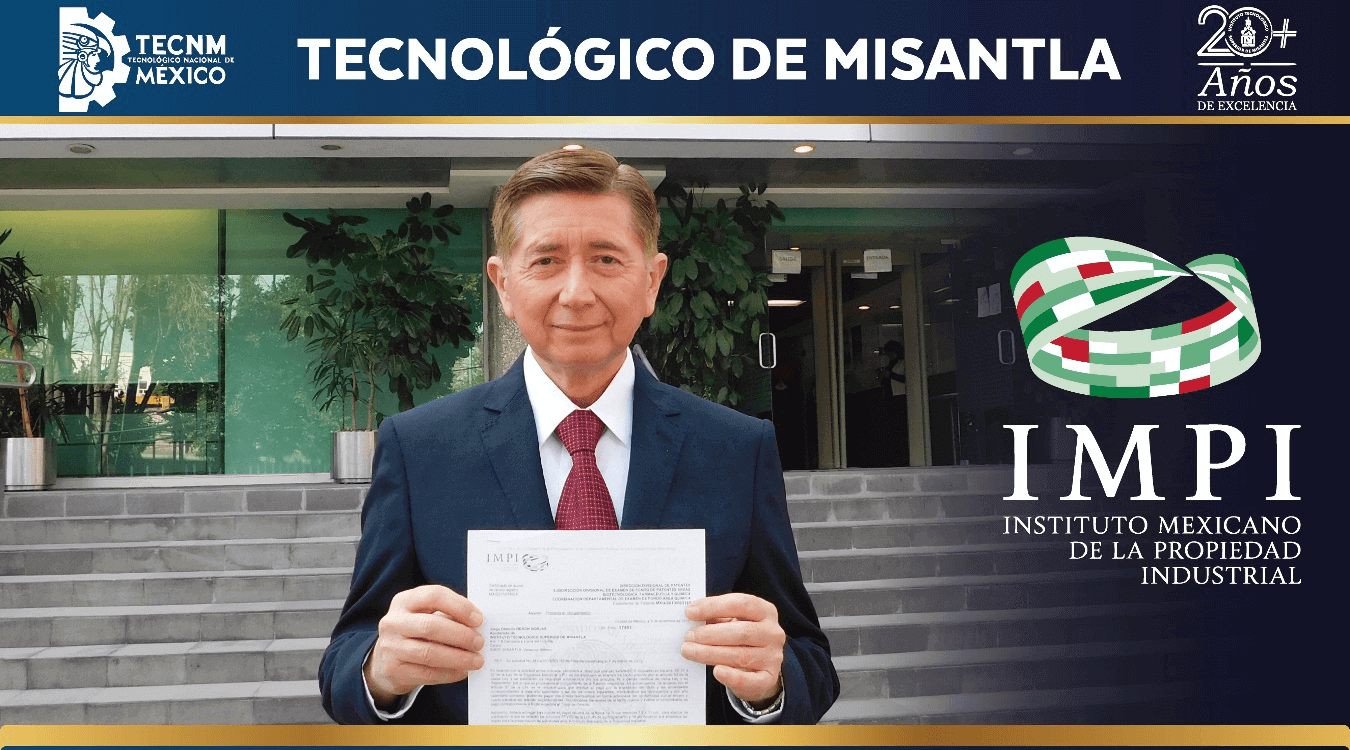By José Alberto Gaytán García *
One of the major problems facing research centers and public and private higher education institutions in our country, is the low or zero production of patents, this situation places us far from the world powers in development and the commercial and technological benefits derived from patents.
It is extremely difficult and complicated to obtain a patent in the country’s higher education system, for example, the National System of Technology Institutes of Mexico, with an enrollment of 630,000 students, 270 campuses and 30,000 teachers, the largest system in Latin America as well as the fifth largest in the world for the training of engineers, has obtained only ten patents in the last 20 years of academic life.
Dr. Gabriela Millán, researcher at the National Polytechnic Institute (IPN) and specialist in intellectual property, recently published the paper entitled “Study on patents of Mexican residents: success cases from the perspective of innovation.” In this research, Dr. Millan points out that according to the Mexican Institute of Industrial Property (IMPI), of the ten thousand patents that are granted per year in Mexico, only three percent are for Mexican residents, 97% for foreigners.
Image 1. Patents awarded to Mexicans. IMPI data 2016.
This negative position is due to several reasons, for example, in Mexico we do not have a national program of protection and support for inventors as happens in China, the United States, Germany and Japan, among other countries. In China, for example, inventors and researchers receive lucrative banking support before obtaining the registration of their patent, this economic support helps them to finish their research, later, they receive advice to commercialize their inventions. In other words, in China, the national priority is to protect and promote intellectual property, therefore, 98% of patents are granted to national companies and inventors, the rest to foreigners, the exact opposite of what happens in Mexico.
At the Ecole Centrale Paris, France, the Industrial Engineering Management and Economic Systems program includes four compulsory subjects; patent law, intellectual property, and industrial and personal copyright, whereas, in Mexico, our engineering programs do not include subjects related to patent law. Ideally, the national education system should include, from primary to higher level, compulsory subjects that deal with the theme of patents, in order to develop in our children a true culture of patenting, so that by the time they reach university they will be a force to be reckoned with when it comes to patents.
This program of support for the researchers and inventors that our country needs, should be aligned to the business sector, in such a way that our researchers direct their work towards the technological needs of the country’s industrial sector. This measure would help us to reduce dependence on foreign technological innovations. In the same sense, the National Council of Science and Technology (Conacyt), which although supportive with technical advice, should also provide economic support for inventors who receive a patent, in order to assure the commercial success of their inventions.
We hope that in 2018 a program of support for industrial protection in Mexico will be approved. Finally, we would like to share some good news related to this difficult issue of patents: only days ago the IMPI granted the patent Mx / a / 2013/003192, to Dr. Luis Mejía Macario, a researcher at the Misantla Technology Institute, who invented a Multifunctional Device for Steam Distillation. Merry Christmas and a New Year abundant in blessings and health.
jalbertogaytangarcia@gmail.com
A129R1/18
Acerca del autor

- José Alberto Gaytán García ha escrito artículos y ensayos de corte académico en diarios y revistas de México y de los Estados Unidos; ha participado en importantes proyectos académicos e impartido conferencias sobre temas de historia, tecnología y educación en el marco de las relaciones entre México y los Estados Unidos, tema en el cual realizó sus estudios de doctorado en The Graduate School of Internacional Studies de la Universidad de Miami.
 Cultura General10 agosto, 2022Michio Kaku: científico del futuro
Cultura General10 agosto, 2022Michio Kaku: científico del futuro Cultura General29 junio, 2020Miguel Alcubierre: viajero de las estrellas
Cultura General29 junio, 2020Miguel Alcubierre: viajero de las estrellas Cultura General6 abril, 2020Niños brillantes (Segunda parte)
Cultura General6 abril, 2020Niños brillantes (Segunda parte) Cultura General6 abril, 2020Niños brillantes (Primera parte)
Cultura General6 abril, 2020Niños brillantes (Primera parte)






